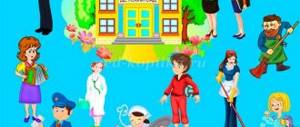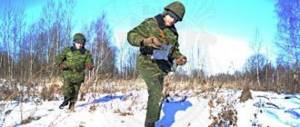A nurse is a medical worker with secondary specialized education in the field of “Nursing.” Such an employee can work in a hospital, clinic, private medical office, aesthetic medicine or dentistry center. He has a limited but extensive list of responsibilities, the quality of which often determines the well-being of the patient. This profession is considered one of the most in demand in our country, but due to a number of features it is not as popular among young people as it should be.
Description and characteristics of the nursing profession
Expert opinion
Ekaterina Kolokolova
Career guidance. Certified specialist in the problems of children's involvement in learning. She has more than 10 years of experience in conducting seminars, trainings and lectures with audiences of all ages.
The main responsibility of a nurse is to assist the doctor at all stages of his work, as well as perform many additional actions. Such an employee has the right to provide pre-medical care, maintain part of the medical documentation, and carry out a number of manipulations. This is a universal worker who should take the load off the doctor as much as possible, freeing up his time for making diagnoses and treating patients.
The specialty will be of interest to people who were interested in biology and chemistry at school and know how to find a common language with people. In medical institutions, patients communicate with nurses up to 90% of the time. They collect tests from them, distribute medications, perform simple medical procedures, change linen, organize meals, and take care of the comfort of patients. It is important to understand that the nurse does not have the right to independently diagnose the patient, prescribe and carry out treatment. Even for administering injections privately, for which the employee does not have a doctor’s permission, he may be held liable, even criminally.
A nurse is a specialist in the field of nursing, a professional assistant to the attending physician, and performs various auxiliary functions for the needs of a medical institution.
Responsibilities
The list of responsibilities of a nurse depends on her specialization:
- the main one - manages the work of all nursing staff of the institution. Receives and implements requests for medicines, dressings, and other items needed for work. Forms the work schedule of nurses and orderlies, distributing duty and vacations. In most cases, she must have a graduate medical degree;
- the eldest is the direct assistant to the head of the department, who is responsible for order in the allocated territory. Performs almost the same duties as the main one, but within the framework of his department;
- the youngest - carries out doctors’ orders, orders from senior colleagues, and cares for patients. Serves as a link between them and the rest of the medical staff;
- operating room - prepares instruments and dressings for surgery. Assists the doctor directly during the operation, following his instructions. After the procedure is completed, he counts the instruments and dressings and sends them for sterilization or disposal;
- treatment room - works in the treatment room, performing various medical procedures as prescribed by the doctor (injections, enemas, collecting tests, etc.), making appropriate notes in the patient’s chart;
- guard - is at a post where patients with questions or doctors with orders can contact her at any time. Maintains order in the wing entrusted to her, controls visits to sick relatives, and distribution of medications to patients;
- ward - deals with patients placed in wards (regular, intensive care). Makes sure that they keep bed rest or are sufficiently active and eat in accordance with their diet. According to the schedule, measures patients’ blood pressure, pulse, temperature, respiratory rate, and then enters the data into documents;
- sister-housekeeper - controls the operation of the warehouse allocated for the department. Monitors the presence of the necessary items on it and, if necessary, replenishes supplies. She also collects laundry to send to the laundry, then picks it up and distributes it to the wards;
- surgical - an employee of the surgical department who assists the surgeon with dressings and minor surgical interventions. Can independently, as prescribed by a doctor, remove sutures, remove drainage, and perform other simple manipulations;
- laboratory - a laboratory employee who can receive biological material, help the doctor with checking it, filling out documentation;
- patronage - usually works at a children's clinic, makes home visits to young mothers to examine the newborn and provide counseling assistance;
- gerontological - a nurse who interacts with older people. Such employees are most often needed in nursing homes, rehabilitation centers, gerontological departments, and hospices;
- school - works in a school or kindergarten, where he monitors the condition of the children. Can provide first aid and then decide to call a doctor. Conducts preventive measures according to schedule (vaccinations, examinations, conversations, hardening sessions);
- specialized - this could be an employee of a dental clinic, rehabilitation center, aesthetic medicine office, physiotherapy and physical therapy department. The list of responsibilities is established by the job description;
- district physician - works in a clinic, conducts consultations together with a doctor. Can make visits to patients at his own address, if it is necessary to perform a manipulation prescribed by the doctor, or take tests from a bedridden patient;
- dietary - creates a menu for patients based on the diet selected by the doctor, monitors compliance with the diet.
Each specialty has its own specifics, but the basic knowledge of all nurses is the same. This allows the professional to independently choose the direction of activity and, if desired, change it.
Example of a job description
Example instructions (page 2)
Example instructions (page 3)
Responsibilities of a nurse
A nurse (nurse) is a specialist with specialized secondary education who monitors and cares for patients. She is a faithful assistant to the doctor at the appointment and during treatment and operations. The nurse provides first aid to victims, performs simple manipulations (gives injections, measures blood pressure and temperature) and procedures, following the doctor’s orders. During the appointment, she writes down the results of the examination and the doctor’s recommendations. The nurse also issues certificates, referrals for examinations, etc. In addition, nurses are excellent administrators. For example, senior nurses manage the work of all other nurses, are responsible for household and medical supplies, and also monitor the completion of documentation.
Report on the nursing profession. By the way, to become a senior nurse you must have extensive work experience or obtain a higher education
In the Russian Empire, nurses appeared on the initiative of the Russian surgeon N. Pirogov during the Sevastopol War of 1854. These were girls of noble origin. Painting by A.I. Kuindzhi “Demonstration operation in the clinic of N. I. Pirogov”
Famous representatives of the profession
Virginia Henderson
Mother and First Lady of Nursing
Sister of mercy, one of the founders of nursing as a professional activity.
More details
Zinaida Ivanovna Mareseva
Guard senior sergeant of medical service
Participant of the Great Patriotic War, Hero of the Soviet Union, medical instructor of the medical platoon of the 1st battalion of the 214th Guards Rifle Regiment of the 73rd Guards Rifle Division.
More details
History of the profession
The Sisters of Mercy trace their lineage back to the 11th century, when the first women's communities began to appear in Europe, based on monasteries, in which they cared for physically suffering patients. In the 13th century, the first shelter was opened, where orphans and abandoned children were cared for. Then the sisters of mercy began to help the wounded, and a little later took responsibility for those suffering from leprosy. Officially, the birth of the first community of sisters of mercy dates back to 1641 - then the first school was created to train women in this profession.
In Rus', sisters of mercy have been officially known since 1863, when the Ministry of War issued a decree on the creation of nursing care for the wounded on a permanent basis. Since 1997, nurses in Russia have received an official code of ethical standards for communicating with patients.
Sisters of mercy of the Omsk military hospital during the First World War. 1915
Who is the profession suitable for?
Nurses interact with people all the time. These could be doctors, colleagues, junior medical staff, patients and their relatives. Everyone needs their own approach. For this reason, sociability, friendliness and politeness are mandatory qualities for such an employee. Nurses are often forced to work long shifts, but at the end of a hard day they must remain calm and patient.
The profession is not suitable for frivolous, sluggish people who are unable to maintain concentration. Nurses must respond instantly to the doctor's orders and have excellent orientation. People's lives often depend on the efficiency of an employee.
Another important quality is responsibility. The employee must understand that a forgotten prescription, a poorly performed manipulation or an error in dosage can lead to tragic consequences.
How to study professions using cards with children
To begin with, choose the simplest and most common professions that a child can see in everyday life: driver, salesman, janitor, doctor, and so on. Show your child several of these cards, name them and tell them where he met them and what the representatives of this profession do. So the baby will quickly understand what we are talking about.
Then you can gradually add new cards to the study, tell them what professions are for, what benefits they bring to people. Be sure to remember, when walking or visiting public places, to show your child people of relevant professions and observe their actions.
Classes with the help of educational cards contribute to the development of the child’s vocabulary, horizons, observation and memory.
Good luck to your children in learning about the world around them!
You can learn professions with the help of educational cartoons Children's Corner
Profession pictures for children
Profession pictures for children
Profession pictures for children
Profession pictures for children
Profession pictures for children
Profession pictures for children
Profession pictures for children
Pictures of children's professions
Pictures of children's professions
Pictures of children's professions
Pictures of children's professions
Pictures of children's professions
Pictures of children's professions
Pictures of children's professions
Pictures of children's professions
Pictures of children's professions
Pictures of children's professions
Pictures of children's professions
Professions in pictures for children download
Professions in pictures for children download
Professions in pictures for children download
Professions in pictures for children download
Professions in pictures for children download
Professions in pictures for children download
Professions in pictures for children download
You can learn professions with the help of educational cartoons Children's Corner
The challenges and rewards of being a nurse
Considering the pros and cons of the profession, we must admit that there are fewer of the former than the latter. But they are much more significant, which attracts people.
- The main advantage of the direction is the opportunity to really help people. Moreover, not only in the workplace, but also in your environment.
- Another advantage is the demand for employees, even without work experience. A diploma and a valid certificate in nursing are enough to get a job in any city.
- If you have a secondary medical education, it is easier to study at a specialized university. You can also take additional training to become a paramedic.
- Many nurses are forced to work irregular hours.
- They constantly experience excessive physical and emotional stress.
- Employees have a high level of responsibility, while they themselves risk becoming infected from infectious patients.
- Increasingly, health workers are subjected to aggressive attitudes from inadequate people and antisocial elements.
- With all this, the salaries of nurses in our country, even with their regular indexations, remain extremely low.
- Because of this, many of them are forced to look for sources of additional income, for example, by performing procedures at home.
- It is also worth preparing for the arrogant attitude of doctors and the neglect of patients and their relatives.
The specialty has many areas, so who you have to work with and what depends on the chosen area. If we are talking about an operating room nurse, then you need to know the name and purpose of surgical instruments, dressings, and medications.
What types of nurses are there?
Depending on the specific place of work, a nurse may have different specializations. The ward nurse observes and cares for patients who are in the hospital. The treatment room gives injections, vaccinations, takes blood for tests, and makes dressings. The district police officer monitors patients in the assigned area and performs procedures at home. An intensive care nurse cares for seriously ill patients, feeds, bandages, makes the bed, puts in a probe, IVs, and prepares for ultrasounds and operations. The nurse in the reception department refers patients according to the document for hospitalization or listens to the patient’s complaints and then refers them to the doctor on duty. She also helps the doctor when examining a patient and follows the doctor’s recommendations.
Where can you study to become a nurse?
You can get the necessary education after the 9th or 11th grade. In the first case, the duration of study will be almost three years, and in the second - almost two. In medical colleges and schools, the program for the last two years of school is given in one year, which becomes the reason for such a difference. Admission usually occurs through a certificate competition. Some educational institutions have to take biology and the Russian language (OGE or Unified State Exam points can also be taken into account). Throughout the country today there are about 250 secondary specialized educational institutions, both independent and at universities, where you can get a nursing diploma.
Wage
In the regions, the salaries of nurses in budgetary institutions often only slightly exceed the subsistence level. In large cities this figure is slightly higher and amounts to 20-25 thousand rubles. Employees of private clinics receive an average of 30-40 thousand rubles. The highest incomes are among representatives of the profession working in dental clinics and aesthetic medicine centers. There are allowances for management positions. Chief nurses' salaries can be 60-70 thousand rubles per month or even more.
Where to develop in nursing
After graduating as a nurse, your career can be developed in one of three directions or in all at once. The first is administrative. In this case, it is recommended to additionally study in absentia, distance learning, or take courses to become a manager, and then apply for the positions of senior and chief nurse. The second is professional. It involves constantly increasing the level of qualifications and gaining experience in order to move to higher-paid positions. The third is medical. After studying at college and working a little as a nurse, you can go to university to become a doctor. The subjects studied will not be counted, but the experience will provide certain advantages.
Today, ninth grade graduates often enter colleges and schools to study nursing. After a year of study, they receive a certificate of complete secondary education, allowing them to enter a medical university. As a result, they save a year that they would otherwise have to spend in school.
Example resume
Sample resume (page 2)



